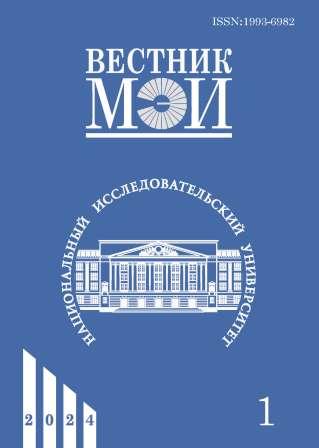Разработка программных средств для расчёта и прогнозирования интегрального индекса системы теплоснабжения типовых зданий на основе нейросетевых методов
Аннотация
Работа посвящена актуальной задаче разработки методов и программных средств для расчёта и прогнозирования интегрального индекса энергосистем зданий на основе показателей их энергетической эффективности и надёжности, которая на данный момент решена лишь частично, ввиду сложности сбора всех данных о здании в имеющихся на сегодняшний день сложных математических моделях. Предложен переход к расчёту интегрального индекса энергосистемы с применением искусственных нейронных сетей, что позволяет существенно упростить процедуру формулирования системы исходных уравнений за счёт использования статистических данных об объекте исследования.
Представлена архитектура прототипа разработанной программной системы совместно со схемой базы данных, описывающей взаимосвязь доступных данных о здании, на основе которых происходит расчёт составляющих интегрального индекса (показателей энергоэффективности и надёжности).
Для решения задачи прогнозирования спроса на энергетические ресурсы энергосистем зданий на основе данных, полученных из открытых источников, предлагается применить метод на основе специально организованной искусственной нейронной сети, описываемой в настоящей работе.
Показана применимость результатов исследования на объектах «зелёного строительства» и офисных зданиях бизнес-центров г. Москвы.
Литература
2. Ведерников А.С., Ярыгина Е.А., Гофман А.В. Выбор метода для задач краткосрочного прогнозирования электропотребления собственных нужд ТЭЦ // Вестник Ивановского гос. энергетического ун-та. 2018. № 6. С. 32—38.
3. Башлыков А.А., Еремеев А.П. Методы и программные средства конструирования интеллектуальных систем поддержки принятия решений для объектов энергетики // Вестник МЭИ. 2018. № 1. С. 72—85.
4. Варшавский П.Р., Еремеев А.П. Моделирование рассуждений на основе прецедентов в интеллектуальных системах поддержки принятия решений // Искусственный интеллект и принятие решений. 2009. № 2. С. 45—57.
5. Firsova I.A. e. a. Energy Consumption Forecasting for Power Supply Companies // Intern. J. Energy Economics and Policy. 2019. V. 9(1). Pp. 1—6.
6. Popov V., Fedosenko M., Tkachenko V., Yatsenko D. Forecasting Consumption of Electrical Energy Using Time Series Comprised of Uncertain Data // Proc. IEEE VI Intern. Conf. Energy Smart Systems. 2019. Pp. 201—204.
7. Lemke F. Probabilistic Energy Forecasting Based on Self-organizing Inductive Modeling // Advances in Intelligent Systems and Computing. 2019. V. 871. Pp. 405—420.
8. Wang J. e. a. Data Center Energy Consumption Models and Energy Efficient Algorithms // Jisuanji Yanjiu yu Fazhan. 2019. V. 56(8). Pp. 1587—1603.
9. Jiang P., Dong J., Huang H. Forecasting China's Renewable Energy Terminal Power Consumption Based on Empirical Mode Decomposition and an Improved Extreme Learning Machine Optimized by a Bacterial Foraging Algorithm // Energies. 2019. V. 12(7). P. 1331.
10. Runge J., Zmeureanu R. Forecasting Energy Use in Buildings Using Artificial Neural Networks: a Review // Energies. 2019. V. 12(17). P. 3254.
11. Андреева Т.Ю., Софроницкий А.П., Гужов С.В. Индекс энергетической эффективности офисных зданий в г. Москва // Advances of Science 2021: Материалы VII Междунар. науч.-практ. конф. Москва, 2021. С. 19—21.
12. Софроницкий А.П., Андреева Т.Ю., Гужов С.В. Индекс надёжности офисных зданий в г. Москва // Там же. С. 28—30.
13. Google for Developers [Электрон. ресурс] https://developers.google.com/machine-learning/data-prep/transform/normalization (дата обращения 16.08.2023).
14. 6.3. Preprocessing Data — Scikit-learn 1.2.2 Documentation [Электрон. ресурс] https://scikit-learn.org/stable/modules/preprocessing.html (дата обращения 16.08.2023).
---
Для цитирования: Варшавский П.Р., Гужов С.В., Сесин А.А., Башлыков М.С. Разработка программных средств для расчёта и прогнозирования интегрального индекса системы теплоснабжения типовых зданий на основе нейросетевых методов // Вестник МЭИ. 2024. № 1. С. 138—146. DOI: 10.24160/1993-6982-2024-1-138-146
---
Работа выполнена в рамках проекта «Разработка нейросетевого программного обеспечения по прогнозированию спроса на тепловую энергию объектами массового строительства города Москвы» при поддержке гранта НИУ «МЭИ» на реализацию программы научных исследований «Приоритет 2030: Технологии будущего» в 2022 — 2024 гг
#
1. Gritsay A.A. Sravnitel'nyy Analiz Metodik Otsenki Ekonomicheskogo Razvitiya Predpriyatiya. Rol' Gosudarstvennoy Statistiki V Razvitii Sovremennogo Obshchestva: Materialy Mezhdunar. Nauch.-Prakt. Konf. 2018;2:136—142. (in Russian).
2. Vedernikov A.S., Yarygina E.A., Gofman A.V. Vybor Metoda dlya Zadach Kratkosrochnogo Prognozirovaniya Elektropotrebleniya Sobstvennykh Nuzhd TETS. Vestnik Ivanovskogo Gos. Energeticheskogo Un-ta. 2018;6:32—38. (in Russian).
3. Bashlykov A.A., Eremeev A.P. Metody i Programmnye Sredstva Konstruirovaniya Intellektual'nykh Sistem Podderzhki Prinyatiya Resheniy Dlya Ob'ektov Energetiki. Vestnik MEI. 2018;1:72—85. (in Russian).
4. Varshavskiy P.R., Eremeev A.P. Modelirovanie Rassuzhdeniy na Osnove Pretsedentov v Intellektual'nykh Sistemakh Podderzhki Prinyatiya Resheniy. Iskusstvennyy Intellekt i Prinyatie Resheniy. 2009;2:45—57. (in Russian).
5. Firsova I.A. e. a. Energy Consumption Forecasting for Power Supply Companies. Intern. J. Energy Economics and Policy. 2019;9(1):1—6.
6. Popov V., Fedosenko M., Tkachenko V., Yatsenko D. Forecasting Consumption of Electrical Energy Using Time Series Comprised of Uncertain Data. Proc. IEEE VI Intern. Conf. Energy Smart Systems. 2019:201—204.
7. Lemke F. Probabilistic Energy Forecasting Based on Self-organizing Inductive Modeling // Advances in Intelligent Systems and Computing. 2019;871:405—420.
8. Wang J. e. a. Data Center Energy Consumption Models and Energy Efficient Algorithms. Jisuanji Yanjiu yu Fazhan. 2019;56(8):1587—1603.
9. Jiang P., Dong J., Huang H. Forecasting China's Renewable Energy Terminal Power Consumption Based on Empirical Mode Decomposition and an Improved Extreme Learning Machine Optimized by a Bacterial Foraging Algorithm. Energies. 2019;12(7):1331.
10. Runge J., Zmeureanu R. Forecasting Energy Use in Buildings Using Artificial Neural Networks: a Review. Energies. 2019;12(17):3254.
11. Andreeva T.YU., Sofronitskiy A.P., Guzhov S.V. Indeks Energeticheskoy Effektivnosti Ofisnykh Zdaniy v g. Moskva. Advances of Science 2021: Materialy VII Mezhdunar. Nauch.-prakt. Konf. Moskva, 2021:19—21. (in Russian).
12. Sofronitskiy A.P., Andreeva T.Yu., Guzhov S.V. Indeks Nadezhnosti Ofisnykh Zdaniy v g. Moskva. Tam zhe:28—30. (in Russian).
13. Google for Developers [Elektron. Resurs] https://developers.google.com/machine-learning/data-prep/transform/normalization (Data Obrashcheniya 16.08.2023).
14. 6.3. Preprocessing Data — Scikit-learn 1.2.2 Documentation [Elektron. Resurs] https://scikit-learn.org/stable/modules/preprocessing.html (Data Obrashcheniya 16.08.2023)
---
For citation: Varshavskii P.R., Guzhov S.V., Sesin A.A., Bashlykov M.S. Development of Software Tools for Calculating and Forecasting the Integral Index of the Heat Supply System of Typical Buildings Based on Neural Network Methods. Bulletin of MPEI. 2024;1:138—146. (in Russian). DOI: 10.24160/1993-6982-2024-1-138-146
---
The work is executed within the Framework of the Project «Development of Neural Network Software for Forecasting Demand for Thermal Energy by Mass Construction Facilities in Moscow» with the Support of a Grant from the NRU «MPEI» for the Implementation of the Research Program «Priority 2030: Technologies of the Future» in 2022 — 2024




